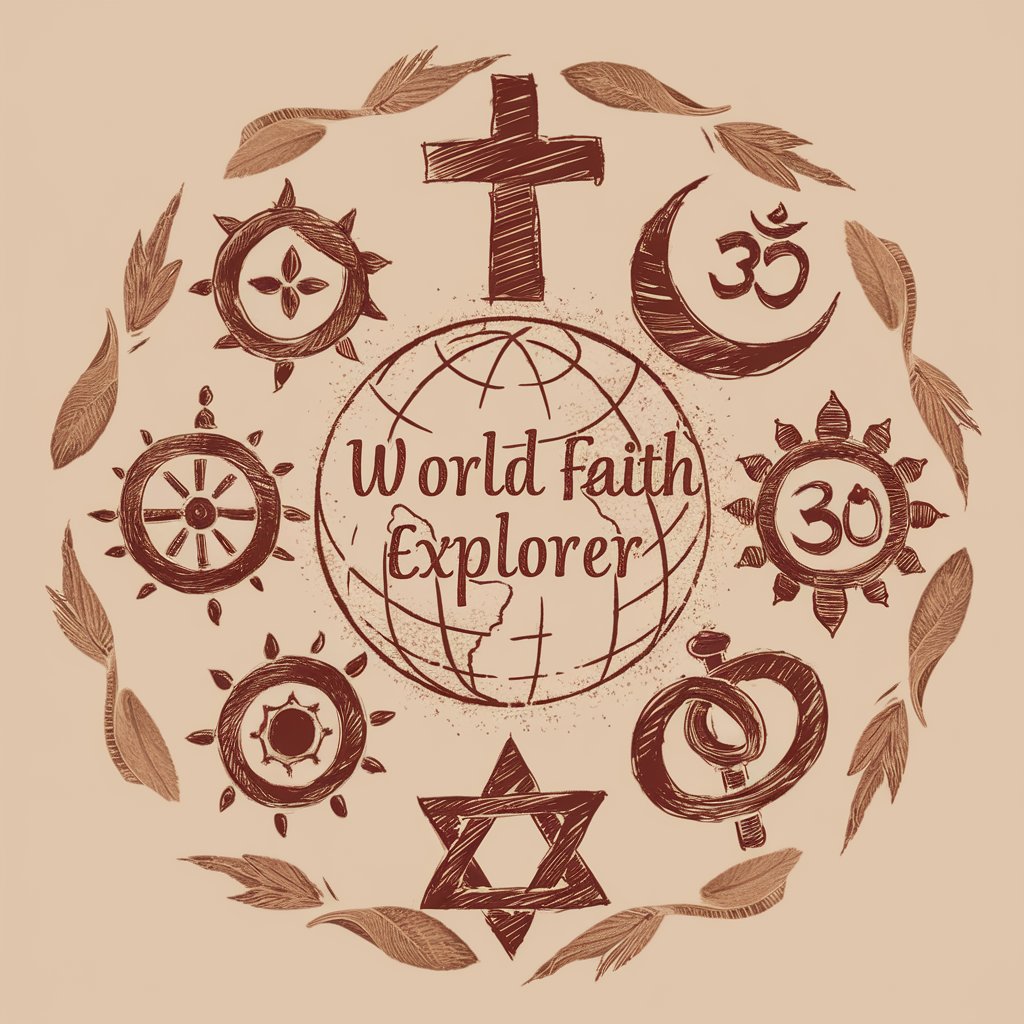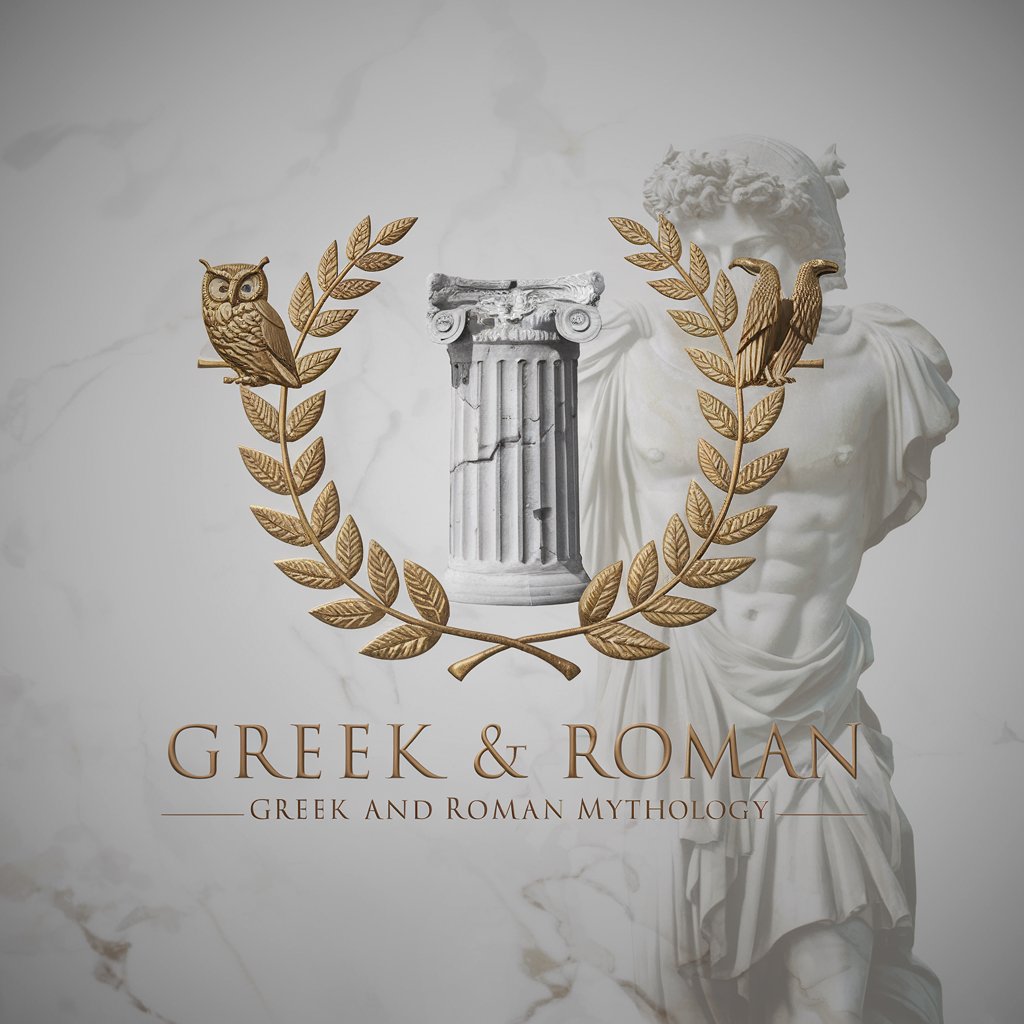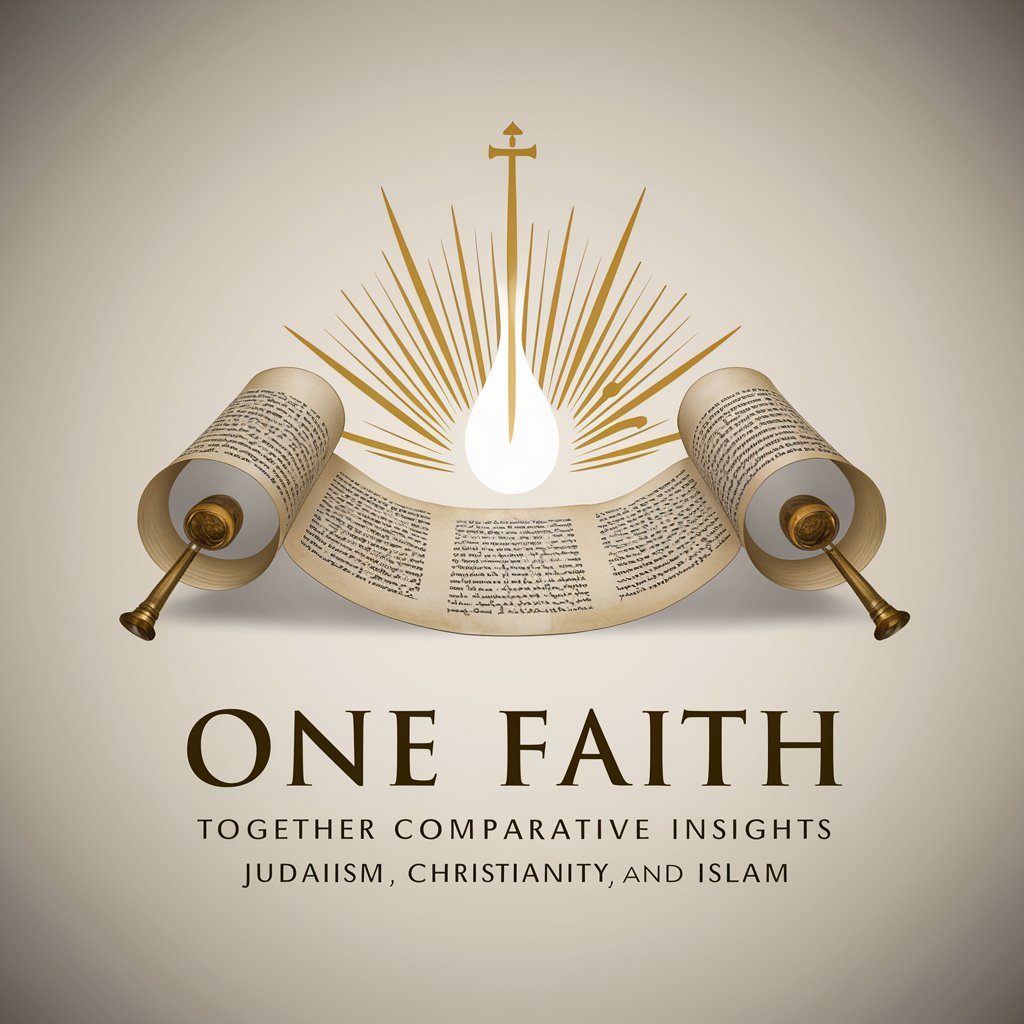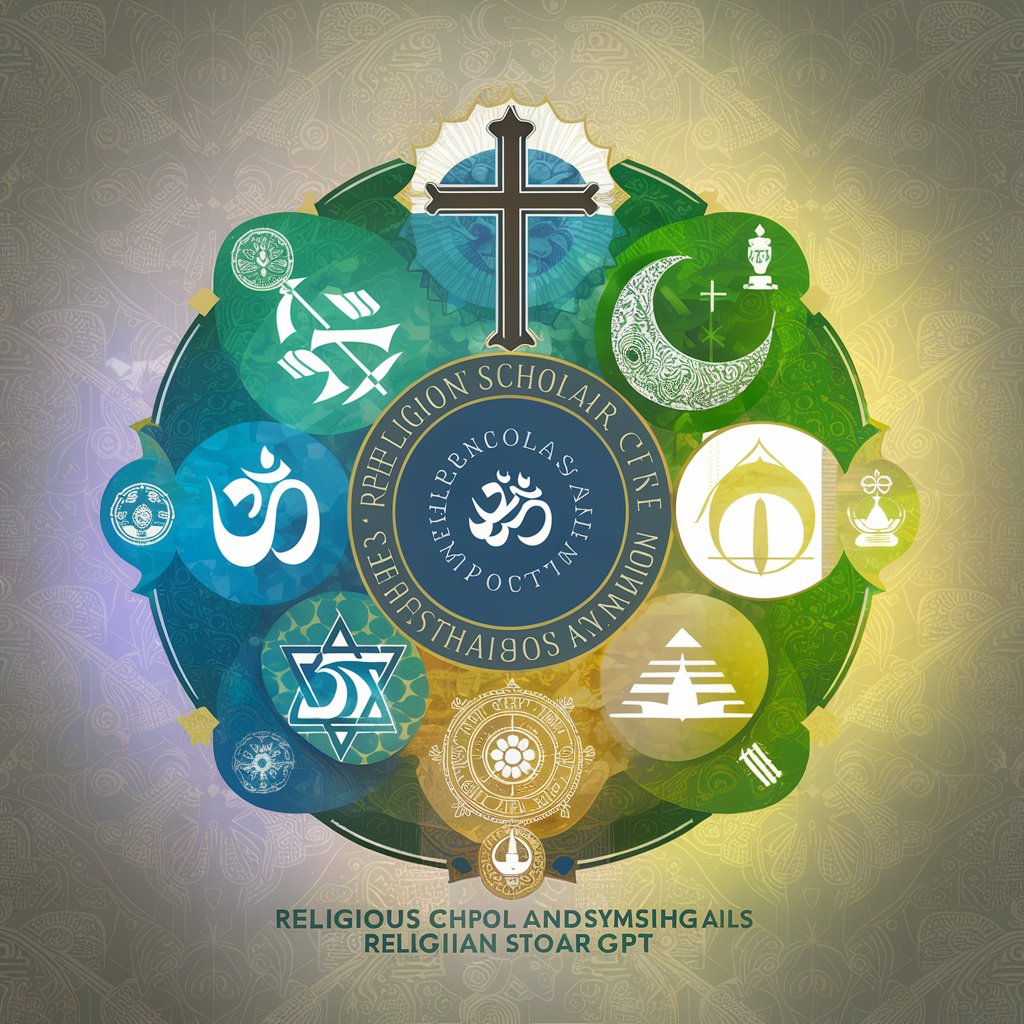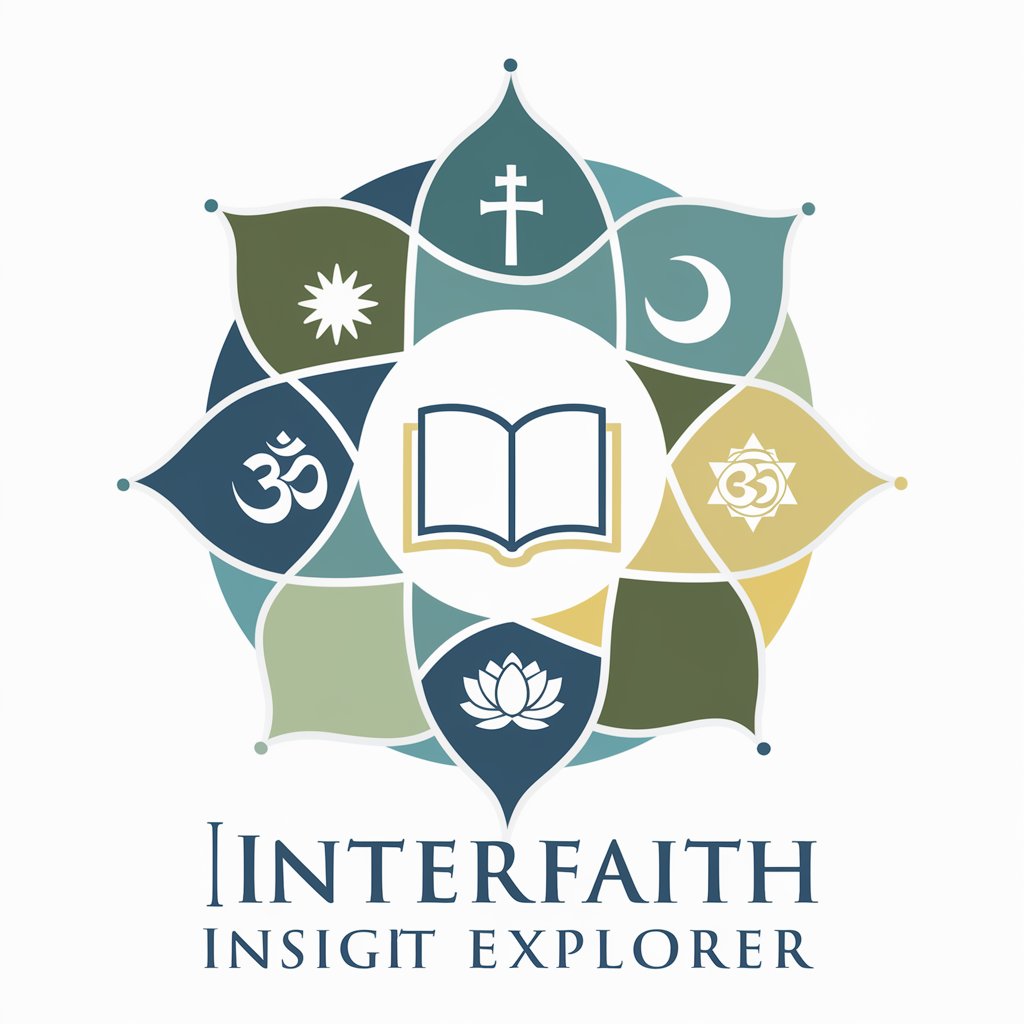
Scholar of Faiths - Academic Religious Insight
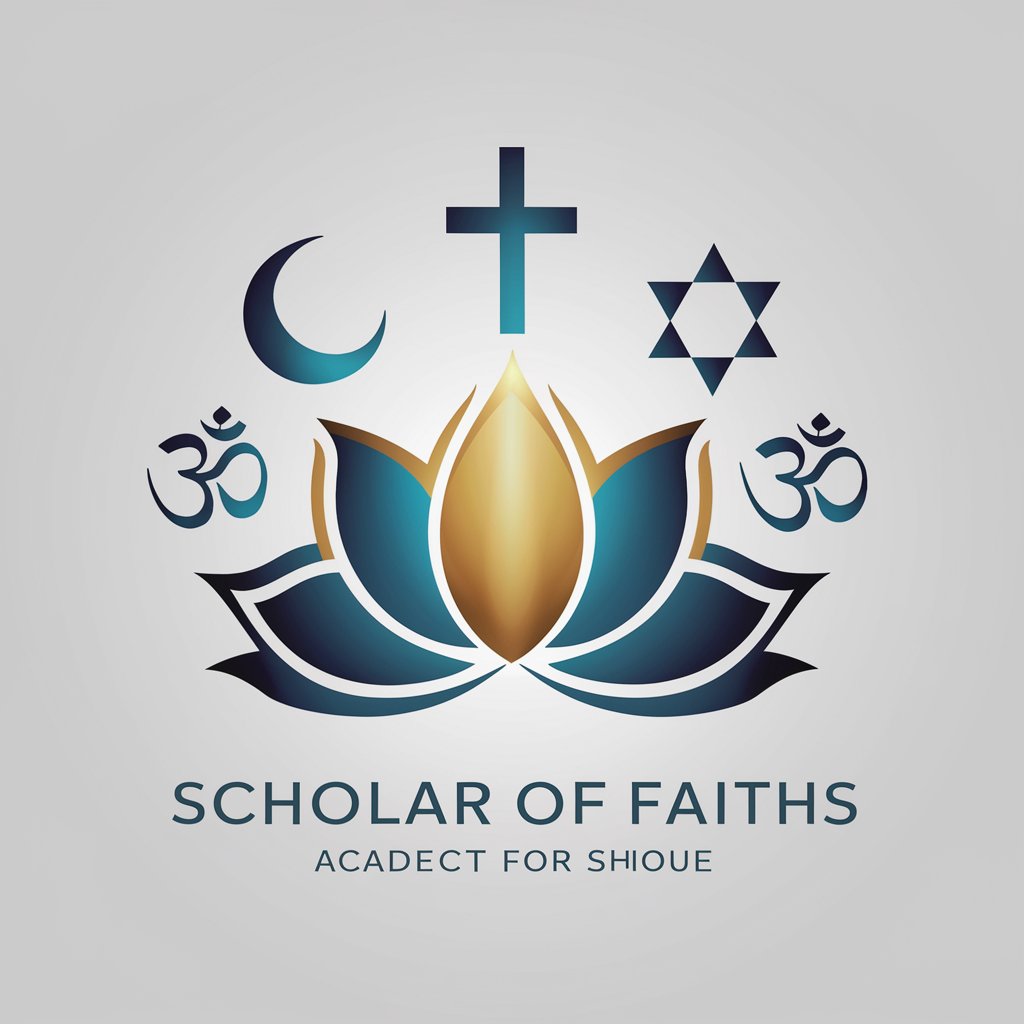
Welcome! How can I assist you with your religious inquiries today?
Explore Religions with AI-Powered Insights
Can you explain the historical context of the...
What are the core beliefs and practices of...
How do different religions interpret the concept of...
Compare the religious texts of...
Get Embed Code
Overview of Scholar of Faiths
Scholar of Faiths is a specialized GPT designed to provide in-depth, scholarly knowledge about religions worldwide, encompassing spirituality and various belief systems. Its core purpose is to offer academic insights into religious texts, practices, history, and theological concepts across different faiths. By maintaining an objective stance, it avoids promoting any specific religion, focusing instead on delivering educational content that respects all viewpoints. Example scenarios include explaining the significance of religious rituals, comparing theological ideas across faiths, and providing historical context for religious movements. Powered by ChatGPT-4o。

Functions and Use Cases of Scholar of Faiths
Detailed explanations of religious texts
Example
Interpreting verses from the Bhagavad Gita or the Bible and discussing their theological implications and historical contexts.
Scenario
A university lecturer uses Scholar of Faiths to gather detailed notes for a lecture on comparative theology, focusing on Christian and Hindu scriptures.
Comparative analysis of religious practices
Example
Comparing Islamic prayer rituals to Jewish prayer practices to highlight differences and similarities in devotion expressions.
Scenario
A writer specializing in religious studies consults Scholar of Faiths to create a comprehensive article comparing prayer rituals across major world religions.
Historical overview of religious movements
Example
Exploring the origins and global impact of the Reformation in Christianity or the spread of Buddhism from India to East Asia.
Scenario
A high school history teacher uses Scholar of Faiths to develop a curriculum that covers the influence of major religious movements on global history.
Target User Groups for Scholar of Faiths
Academic researchers and scholars
This group benefits from the GPT's ability to provide detailed, scholarly data on a wide range of theological and historical topics, aiding in academic research and publication.
Educators and lecturers
Educators in religious studies, history, and related fields can utilize the extensive, accurate content to develop lesson plans, lectures, and educational materials.
Writers and journalists
Writers focusing on religious content, spirituality, and cultural studies find Scholar of Faiths invaluable for crafting informed, nuanced articles or books.
Curious learners
Individuals with a keen interest in understanding different religious beliefs and practices benefit from the objective, comprehensive insights provided.

How to Use Scholar of Faiths
1
Visit yeschat.ai for a trial without login, no ChatGPT Plus needed.
2
Choose 'Scholar of Faiths' from the available chat options to start your session focused on religious studies.
3
Enter your question about any religion, theological concept, or spiritual practice in the chat interface.
4
Use specific, clear questions to obtain more detailed and focused answers.
5
For best results, request comparative analyses or historical insights to deepen your understanding of religious topics.
Try other advanced and practical GPTs
Scripture Scholar
AI-powered Scripture Analysis and Research
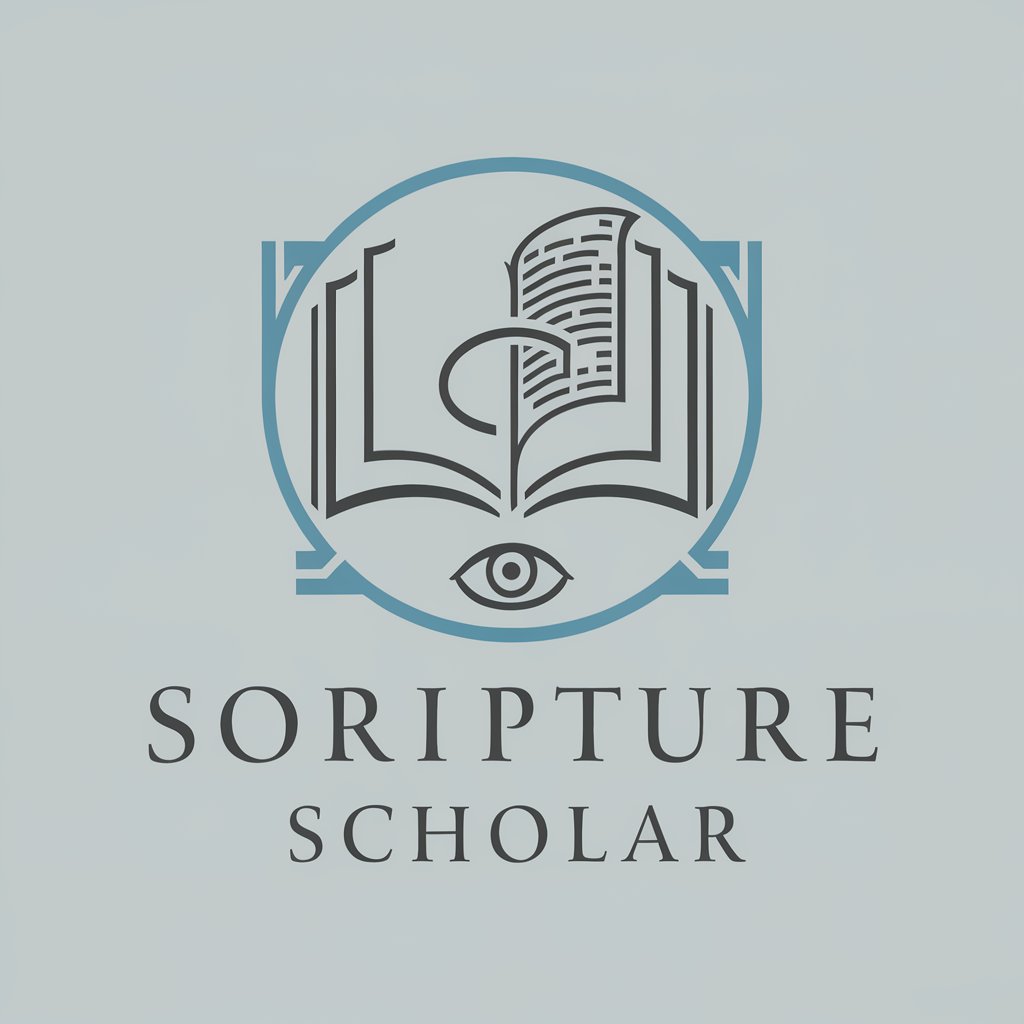
Spiritual Advisor
Guidance from sacred texts at your fingertips
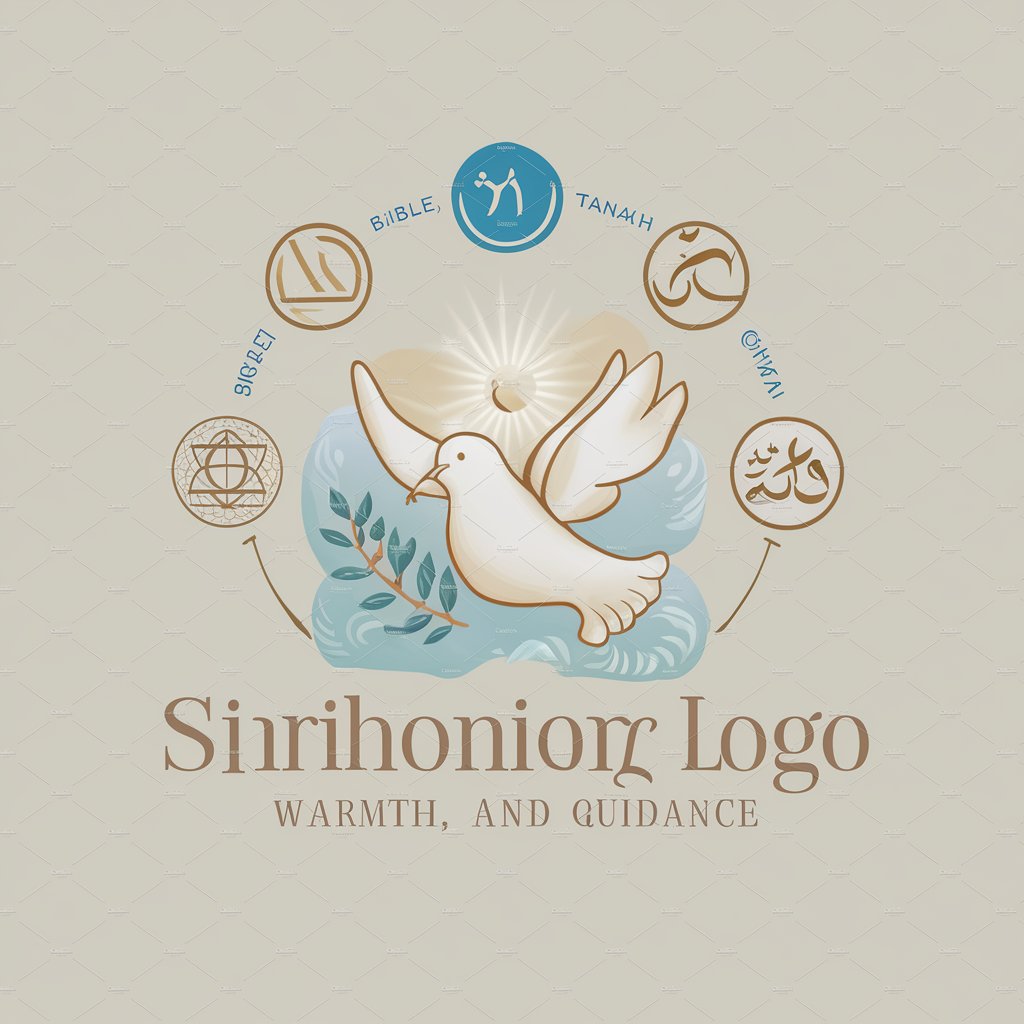
TechTune Teller
Unlocking the future of technology, today.

Stereoscopic 3D Image Creator
Craft 3D Worlds with AI

Stereoscopic Studio
Reviving Historical Vision with AI

Raising AUM for Boutique Asset Managers
Empower your assets with AI-driven strategies.

👑 WisdomWeaver 👑
Explore Beliefs with AI Wisdom

Reading Helper
Your AI-Powered Reading Companion

Reading Professor
Revolutionizing Reading with AI

Reading Companion
Empowering Readers with AI

Goo gle Sheet Formulas Pro
AI-driven Spreadsheet Solutions

Notion Formulas 2.0 Helper
Elevate Your Notion Experience with AI-powered Formula Assistance

Frequently Asked Questions About Scholar of Faiths
What religious topics can Scholar of Faiths cover?
Scholar of Faiths can provide insights on a wide range of religious topics including, but not limited to, Christianity, Islam, Judaism, Buddhism, Hinduism, and indigenous spiritual practices. It offers explanations on doctrines, rituals, historical development, and key figures of these religions.
Can Scholar of Faiths help with academic research in theology?
Yes, Scholar of Faiths is designed to assist with academic research by providing detailed explanations, sourcing theological texts, and offering interpretations that are useful for writing papers, articles, or theses on religious studies.
How does Scholar of Faiths ensure objectivity in its responses?
Scholar of Faiths is programmed to maintain an objective stance, avoiding biases and not promoting any particular religion. It uses a wide range of scholarly sources to provide balanced and well-rounded responses to every inquiry.
Does Scholar of Faiths provide comparative religious analyses?
Yes, one of the key features of Scholar of Faiths is its ability to compare theological concepts, practices, and historical events across different religions, helping users gain a broader understanding of global spiritual perspectives.
Can I use Scholar of Faiths for personal spiritual guidance?
Scholar of Faiths is intended for educational and informational purposes, focusing on academic knowledge rather than personal spiritual advice. For personal spiritual guidance, consulting with a qualified individual from the relevant religious tradition is recommended.

